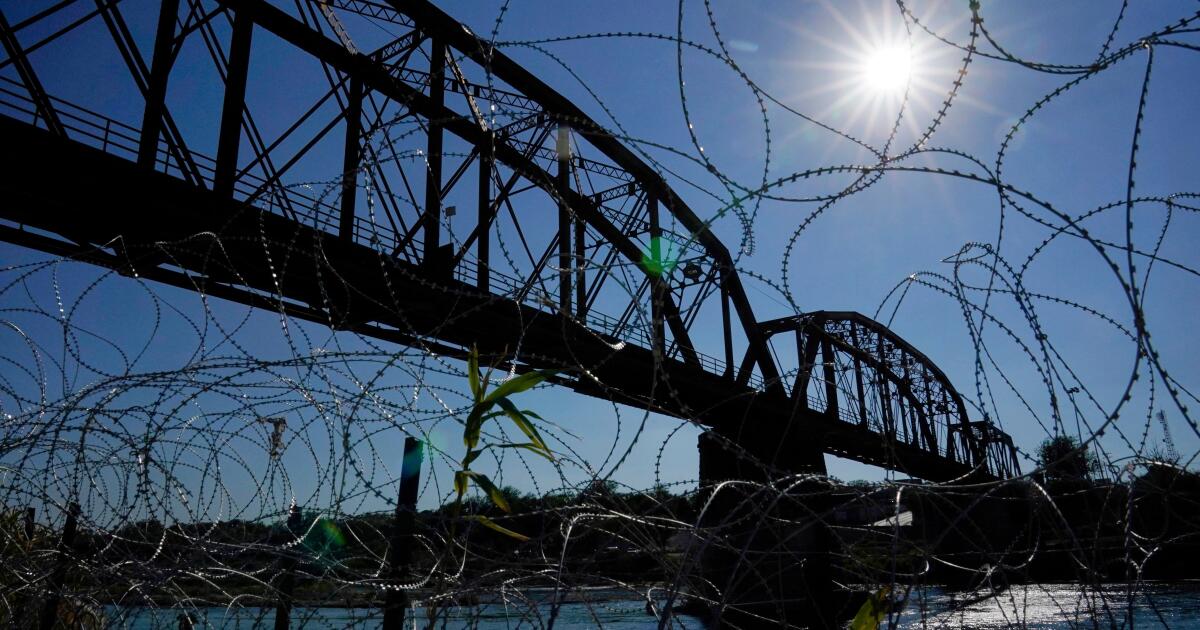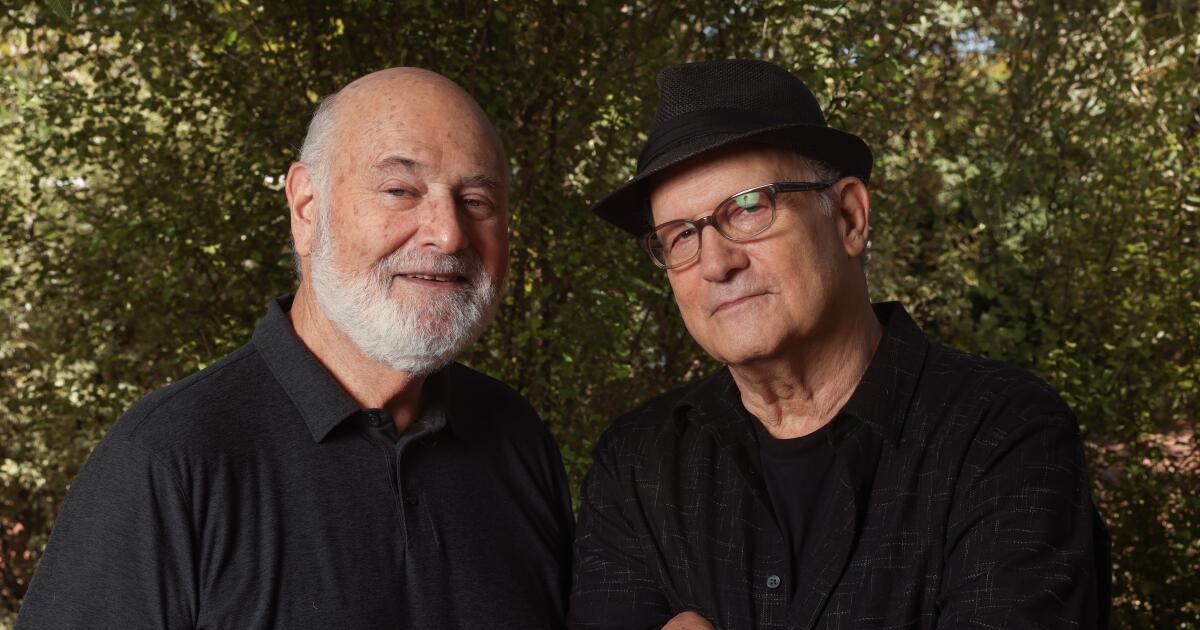Former Lionness Karen Karney, Reality TV personality Amber Davies and social media star George Clarke will battle it out this weekend at the Strictly Come Dancing 2025 live grand final
“It’s not about the Glitterball trophy… it’s so much bigger than that,” says former Lioness Karen Carney ahead of the Strictly Come Dancing final this weekend.
Viewers have watched Karen go on quite a journey over the 13 week series, transforming from shy ex-footballer into elegant ballroom dancer.
Karen, 38, is now favourite to win the show over her fellow finalists George Clarke and Amber Davies, though she’s already taken one title in being the first football star in 21 years to make it to the end.
“It feels weird and I can’t quite believe it but I’m really proud,” says Karen. “What I learned from being an athlete is that things are over very quickly. One minute I was a 17-year-old footballer who burst onto the scene, allegedly, and the next I was old and retired and couldn’t move. Life goes very, very quick. I’ve tried to enjoy every second.”
Following her decision to retire after a spate of injuries at 31, Karen suffered a total crisis of confidence. “I couldn’t figure out how to fix that,” she says. “For five or six years I felt crushed. But I always thought if I could ever get the opportunity to throw myself into what I felt would be a safe environment then I’m taking it. I always knew in my heart Strictly would be that thing. Every Saturday I’d watch it at home and I’d fall in love with the dancers and enjoy their journeys and I’d forget about everything else. I thought if I ever got the privilege to join it would help me and it absolutely has.
“It’s rebuilt my confidence and this is by far the happiest I’ve ever been. I’ve smiled like I never have before, and I’m forever grateful to the show and to Carlos [partner Carlos Gu] for that. I feel I have a responsibility to give it everything I’ve got because I know when I was sitting on the sofa Strictly helped me. I have to give that feeling back to everyone at home.”
Viewers have seen Karen thrive on the show, as she jokes she’s been ‘living her best life’ in sequins and feathers.
“I hoped the show would be everything I dreamed of and it’s absolutely smashed it and surpassed it. I’ve drummed with the band, I’ve got a signed photo of [costume designer] Vicky Gill and I’ve had one of my outfits signed. But I’ve also been naughty and nicked my Peaky Blinders hat,” confesses Karen, admitting she swiped the flat cap from her Brummie inspired Argentine Tango, a dance she will recreate for the judge’s pick in the final. “I never thought I’d do it again so I took it as a memento. Now I’ve got to find it in the house again for Saturday.
“That dance was a turning point because we dipped for about four or five weeks until that. This number was about representing Birmingham for me. I said to myself, ‘You cannot let your city down girl. You’ve got to dig deep, fight for this and you’ve got to represent.’ I walked in on a Monday and I was like, ‘Right I’m in character and I’m ready to go’… and Carlos laughed at my serious faces.”
Despite their obvious banter, it’s clear nobody is a bigger champion of Karen than her partner Carlos who has had a front row seat for the huge change in the sportswoman.
“In the beginning when I met her, she was not confident and insecure.,” recalls Carlos. “But we all saw that Waltz where she became a princess. It was one of the best moments in my life to see her like that. She was so beautiful.”While Karen has undergone a journey of self-belief, for fellow finalist Amber, Strictly has been an often emotional and challenging battle with the public’s perception of her. After being accused of being ‘too confident’, ‘too polished’ and ‘too good’ for the show, Amber’s previous stage experience – appearing in hit shows including 9 to 5: The Musical and The Great Gatsby musical – seemed to be the very thing that sabotaged her.
Despite huge praise and high scores from the judges each week, Amber is the only finalist to have been in the dance-off this series.
“I didn’t know what my purpose was on Strictly until I realised that I was getting a lot of negative comments for being good,” she says. “I can’t believe I have to say this in 2025 but being ambitious as a woman, being confident, having dreams and working hard does not mean you are stuck up. It doesn’t mean you are arrogant. I want to change that. It shouldn’t even be the narrative.
“I’ve had lots of people say, ‘I can’t warm to her’. It’s because they don’t want to warm to me. That’s it. At the end of the day, I come from a small town in north Wales and I have worked so hard because I love what I do.”
Defending her place in the competition, Amber says: “I was given this opportunity… nobody was going to decline Strictly as a Strictly fan.”
Amber, 29, had been a last minute sign up after fellow ex Love Island star Dani Dyer withdrew to injury days before the launch.
“Getting to the final was never on my bingo card,” says Amber. Asked if she could see herself take home the trophy, she replies: “What is the definition of winning? For me, even just getting that phone call to be on the show I felt like I’d won.”
Revealing what she’s learned from the experience, Amber says: “Whatever you care for in life, go for it with two hands and don’t undermine yourself to make other people feel comfortable, because that’s not what we’re here for.”
For professional dance partner Nikita Kuzmin it’s been a dream to be paired with a celebrity with Amber’s skill.
“It’s just outstanding to see your partner shine,” he says. “I’ve found it exciting to do things on the show that have never been done before because the show’s been going over 20 years and to create new things and to think outside the box… And then when you have people like Amber, who are light, can do everything that you ask of them then why not go for it?”
While the finalists are gearing up to compete in front of an audience of millions this Saturday night, content creator George will be one of the first to admit he started as one of the lesser known names on this year’s line-up, despite having two million followers on TikTok.
“It’’s a completely different world to what I’m used to. I’m used to performing into a camera that’s [close up to] my face and I can cut out all the rubbish bits. Unfortunately, I can’t do that on the dancefloor,” says George, 26. “This is something my family can properly understand. They’ve always been supportive but this is different.”
Being on the show has also brought George to the attention of a whole new fan base. “It’s weird to walk down the street now,” he says, revealing he’s approached by grandmothers asking for selfies to youngsters calling his name. “And screaming teenage girls,” adds his partner Alexis Warr. “I block that out,” insists George.
After Angryginge won I’m A Celebrity… Get Met Out of Here! , 2025 could be the year two social media stars win the biggest reality shows on television.
“It’s good to have that representation,” says George. “Congratulations to him and fingers crossed for me!”
The final is also the last time Tess Daly and Claudia Winkleman will front the show after announcing their exit, with emotions set to run extra high in the ballroom this weekend.
“We’re aware of how big a part of Strictly Tess and Claudia are and it’s a privilege to be able to be a part of one of their seasons let alone their last one,” says George. “Even after one series we’ve realised how inclusive and loving they are. We’ve known them for 13 weeks but it feels like longer and they genuinely care about us. You can tell why they’ve been a part of the show for so long.”
Strictly Come Dancing: The Final, Saturday, BBC One,7pm






